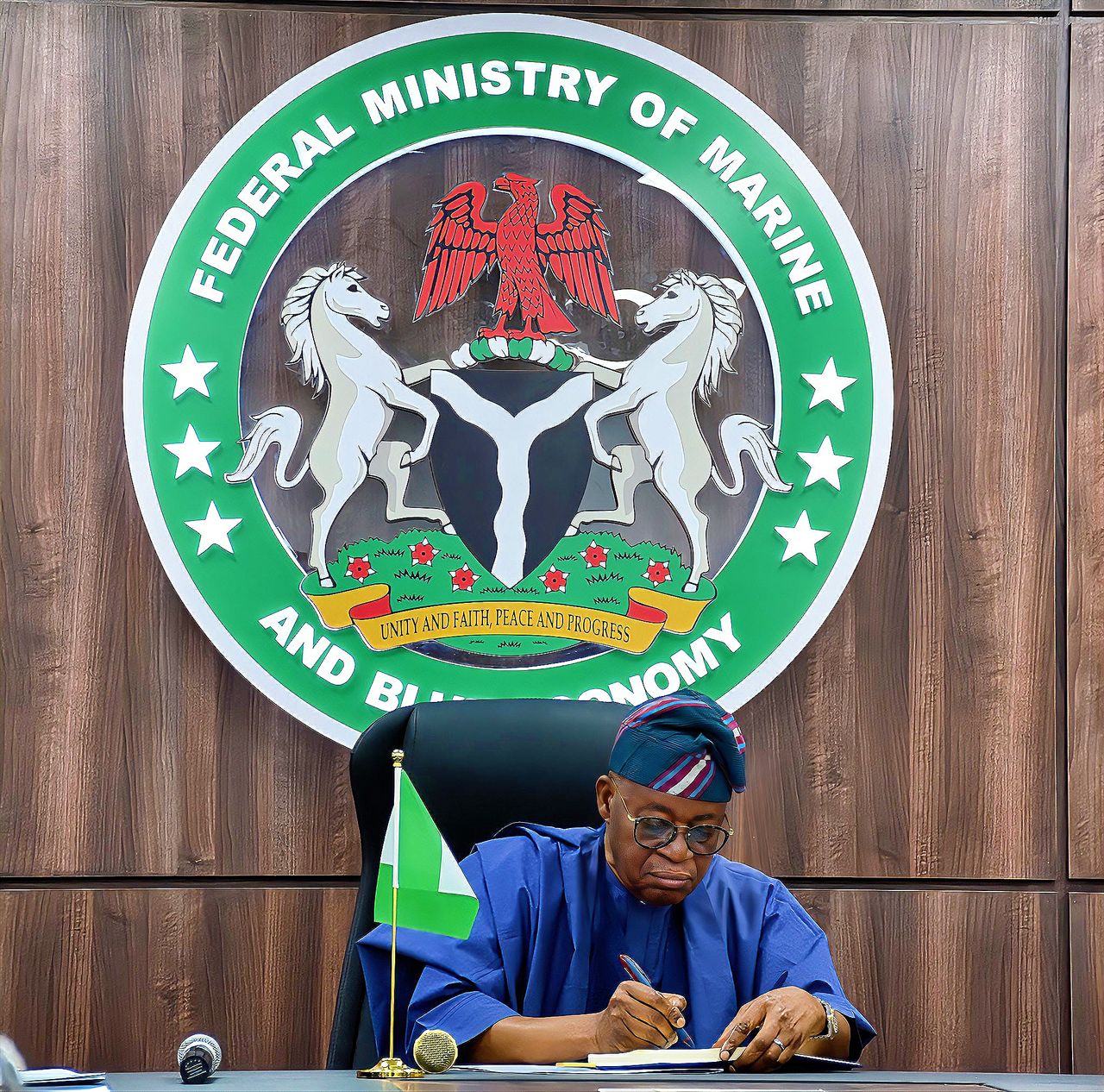The Minister of Marine and Blue Economy, Adegboyega Oyetola, has announced a series of initiatives aimed at strengthening Nigeria’s maritime sector, with a particular focus on sustainability, digital transformation, and private sector engagement.
Among the highlights is the implementation of the Turtle Excluder Devices (TEDs) Certification Exercise, designed to align Nigeria with international conservation standards and open access to eco-conscious global markets.
Speaking through Dr. Mercy Ilori, Director of Maritime Services at the Ministry, Oyetola made the announcement during his keynote address at the third Maritime Transportation Industry Breakfast organized by the Nigerian Maritime Law Association (NMLA) in Lagos.
The event, themed “Prospects for Accelerated Growth and Other Matters Arising,” brought together key stakeholders in Nigeria’s maritime and blue economy sectors.
The TEDs Certification Exercise, according to the Minister, is not only a demonstration of Nigeria’s commitment to sustainable fishing practices but also a strategic move to increase the market value of Nigerian seafood exports.
“This initiative will allow fishers to demonstrate their commitment to sustainability in fishing,” Oyetola said. “It will also open doors to new markets that prioritize eco-friendly products and ensure better prices.”
Beyond conservation, Oyetola highlighted the Ministry’s broader reforms, including efforts to strengthen regulatory frameworks, enhance the capacity of local fishers, and promote private sector adoption of modern aquaculture techniques—all aimed at ensuring long-term viability and competitiveness in the industry.
In a further push for modernization, Oyetola disclosed the ongoing development of the Port Community System, a centralized electronic platform designed to automate port operations, reduce processing time, and streamline stakeholder coordination. “This digital platform will enhance the ease of doing business at our ports and ensure a more efficient maritime logistics chain,” he noted.
The Minister also emphasized the Ministry’s continued efforts to finalize the disbursement of the Cabotage Vessel Financing Fund (CVFF), which will provide capital support to indigenous shipping firms.
“We are engaging relevant stakeholders to finalize arrangements for the disbursement of the CVFF to strengthen indigenous capacity,” he said.
Additionally, he referenced the constitution of a National Fleet Implementation Committee to establish a private-sector-led national maritime fleet capable of participating in the carriage of Nigeria’s import and export cargoes.
Oyetola reaffirmed the centrality of maritime transport to global and national development, pointing out that the sector handles over 80 percent of global trade and is estimated to have oceanic potentials worth more than $1.5 trillion annually.
Also speaking at the event, the President of the Nigerian Maritime Law Association, Mrs. Funke Agbor, underscored the importance of sustained dialogue and collaboration to unlock the sector’s full potential.
In her speech titled “The Importance and Prospects of Accelerated Growth of Maritime Transportation in Nigeria and Matters Arising Therefrom,” Agbor said the breakfast series was designed to foster stakeholder synergy and shape practical solutions for maritime sector growth.
“In the spirit of partnership and progress, we gather today to exchange ideas, challenge assumptions, and chart pragmatic pathways toward enhancing Nigeria’s maritime transport potential—an essential pillar of our national development,” she said.
Agbor further stressed the need for deliberate policy frameworks, regulatory oversight, and private sector involvement to realize the untapped potential of maritime transportation in Nigeria. She reiterated the Association’s commitment to strengthening the legal, institutional, and policy structures through advocacy, capacity building, and continuous stakeholder engagement.
